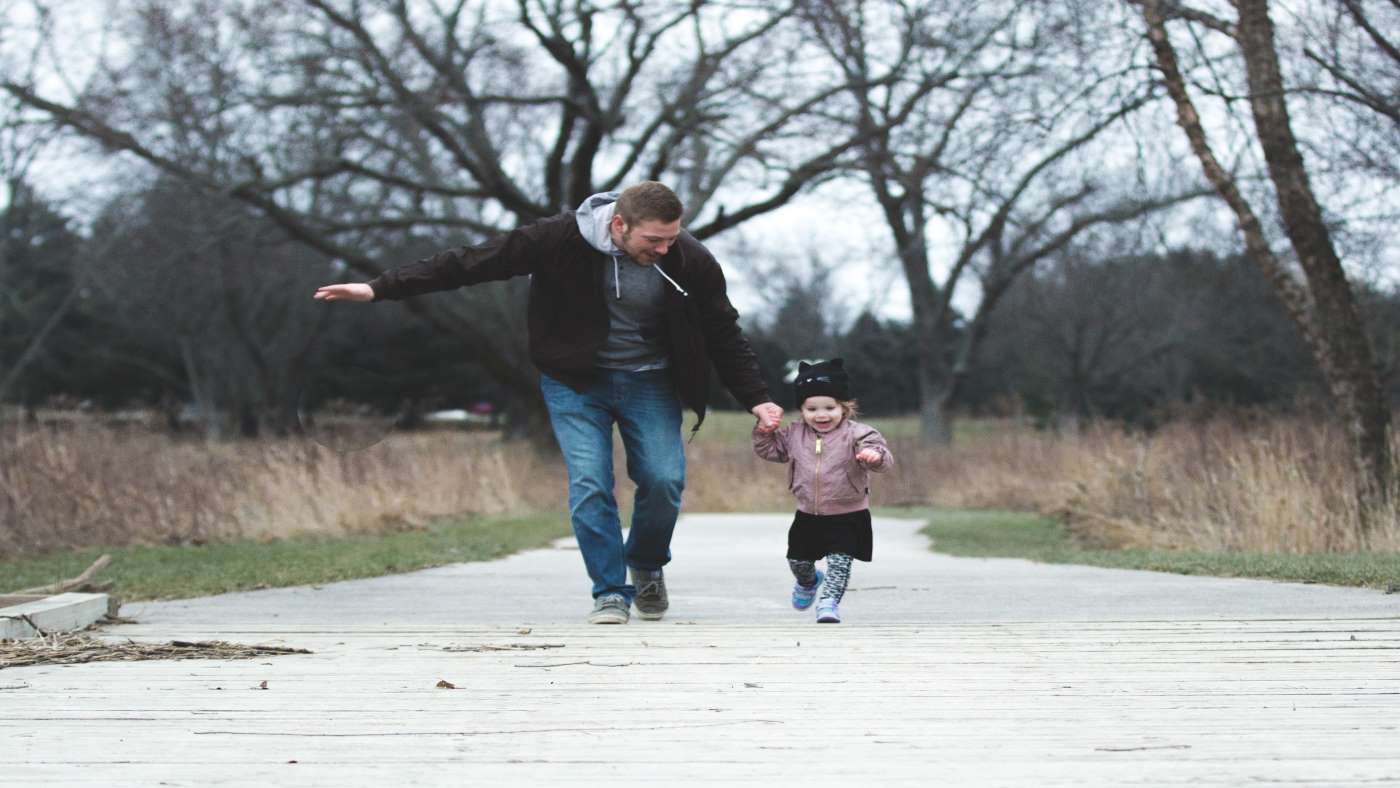Five reasons to play outside with your toddler today

We’re big fans of enjoying the great outdoors – whatever the weather! There are many benefits to playing outside for young children; here are some of our favourites .
Building balance, strength and control
Getting outside to walk and move in different ways engages multiple groups of muscles in the body.
Learning how to move on different textures and surfaces can also support balance and core strength – so get those wellies on and go squelching in some mud!
Sensory development
Being outside is a great sensory experience. Walking through the park and taking the time to look at, talk about and experience all of the different sights, smells and sounds that are around you is great – and even better as the seasons change and things begin to look a little different.
Exploration and investigation
The outdoors is a great place for your toddler to begin exploring and investigating things that interest them.
They may want to watch worms wriggling in the flower beds, feel ice as it melts, or have a go at splashing in a muddy puddle to see what happens.
Developing love and appreciation of nature
Spending time outside can help your toddler become familiar with many different aspects of nature. After seeing beautiful plants and trees, they may be encouraged to grow their own and help you in the garden.
If they have spent time observing wildlife, this might encourage them to care more closely for animals and creatures that they come across, as well as being more comfortable in their presence.
Learning to take risks
Your toddler doesn’t have the cognitive skills to judge risks themselves yet, but by talking to them about what you would consider to be safe or unsafe will help them begin to learn how to weigh up and take risks in the future.
For example, tell them about checking that an area is clear before playing in it, moving dangerous obstacles out of the way, looking that a landing is safe before jumping, and taking care with tools, will all support safe play.
Talking to your child about risks from a young age will help them understand themselves – and as they grow older they’ll begin to manage these risks with growing independence.